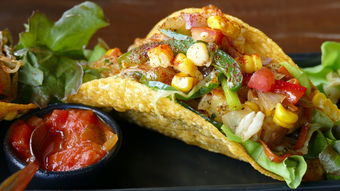Introduction
Embarking on a journey through the diverse and vibrant world of food is an experience that transcends borders and cultures. It's a sensory exploration that engages not only our taste buds but also our minds and hearts. In this article, we'll delve into the concept of a "food journey" and how it can enrich our lives, offering a glimpse into the culinary traditions of various regions and the stories behind the dishes that have become synonymous with their origins.
The Significance of Food in Culture
Food is more than just sustenance; it is a reflection of a culture's history, values, and identity. Every dish tells a story, and every ingredient carries with it the legacy of the land and the people who cultivate it. From the spicy curries of India to the fresh seafood of Japan, from the hearty stews of Spain to the rich sauces of Italy, each cuisine is a testament to the unique blend of flavors and techniques that have been passed down through generations.
The Art of Food Exploration
Exploring food is an art that requires curiosity, openness, and a willingness to step out of one's comfort zone. It's about more than just eating; it's about understanding the context in which food is prepared and enjoyed. This involves learning about the local ingredients, the traditional cooking methods, and the cultural significance of the dishes. It's about engaging with the people who create the food, asking questions, and listening to their stories.

The Joy of Discovery
One of the most exciting aspects of a culinary adventure is the joy of discovery. Whether it's trying a new dish for the first time, learning about an unfamiliar ingredient, or mastering a new cooking technique, each new experience adds depth to our understanding of the world and ourselves. It's about embracing the unfamiliar and finding beauty in the diversity of flavors and culinary traditions.
The Role of Travel in Culinary Exploration
Travel is a powerful tool for culinary exploration. It allows us to immerse ourselves in the local culture, to experience food in its natural environment, and to connect with the people who create it. From street food markets in Bangkok to vineyards in Bordeaux, from farm-to-table restaurants in California to traditional tea ceremonies in Kyoto, travel opens up a world of culinary experiences that are impossible to replicate at home.
The Globalization of Food
In today's interconnected world, the lines between different culinary traditions are blurring. Globalization has made it possible for us to access a wide range of international ingredients and dishes, which has led to a fusion of flavors and techniques. This has resulted in a rich tapestry of culinary innovation, where chefs from different backgrounds are inspired by each other's traditions and create new dishes that reflect a global perspective.
The Sustainability of Food
As we explore the world of food, it's important to consider the impact of our choices on the environment and the communities that produce our food. Sustainable food practices are becoming increasingly important, as they ensure the long-term health of our planet and the well-being of the people who depend on it. This includes supporting local farmers, choosing organic and ethically sourced ingredients, and reducing food waste.
The Future of Food
The future of food is an exciting and challenging landscape. With advancements in technology, we're seeing new methods of food production, such as lab-grown meat and vertical farming. These innovations have the potential to address issues of food scarcity and environmental impact, while also offering new culinary possibilities. At the same time, there's a growing movement to preserve traditional culinary practices and to promote the importance of cultural heritage in food.
Conclusion
A culinary adventure is a journey of the senses, a voyage into the heart of culture, and a quest for understanding. It's about more than just the food; it's about the stories, the people, and the experiences that shape our world. As we embark on this journey, we gain a deeper appreciation for the diversity and richness of human experience, and we become part of a global community that shares a common love for the art of food. So, let's raise our glasses, or chopsticks, or forks, and toast to the beauty of culinary exploration and the endless possibilities it holds. Bon appétit!










